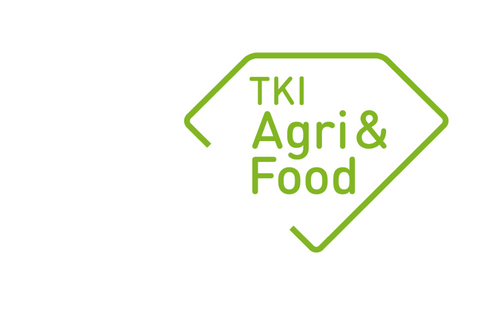Projecttitel: PROSPEC – Processing of pectin and chitin/chitisan from side streams into functional and high-value ingredients
Projectnummer: AF-18030
Missie: Kringlooplandbouw
MMIP: Hergebruik zij- en reststromen (A3)
Looptijd: 2019 – 2022
Budget publiek: € 560.000
Budget privaat: € 560.000
Projectleider: Frits de Wolf
Betrokken partijen: Avebe, Biocatalysts, Chitinor, Herbstreith & Fox, Hoogesteger, Unilever, Wageningen University & Research
Pectin is abundant in waste streams of for example the potato-, or fruit-processing industries and chitin in side streams of crustacean seafood-processing and fermentation industries. Isolation and valorisation of these polysaccharides is an important step towards waste reduction and economic growth in these industrial sectors, implying – in addition – a more efficient use of arable land and marine resources. Using mild biocatalysis, these polysaccharides will be converted into valuable natural derivatives with enhanced/novel functionality, for replacement of petrochemical molecules and polymers in industrial applications such as household and personal (HPC) formulations, and for food applications. The use of enzymes enables the selective production of special derivatives that cannot be made by chemical means, while uncommon, not (yet) commercially available enzymes exist that enable the formation of special, novel derivatives. The ‘green’ origin, biodegradability and enhanced or novel functionality of the pectin – and chitin – based ingredients will reduce the ecological footprint of HPC products and increase consumer acceptance, thus conferring economic security . While a significant amount of work has been conducted around the world into the extraction of polysaccharides from biomass, less information and capability are available for the structural analysis of raw materials and the biotransformations of these into more well understood functional polymers. Based on initial data and literature, we hypothesize that small changes in structure, architecture and molecular weight of these polysaccharides can have significant effects on their performance. To steer ingredient design and selection, a database of structure-function relationships will be built, of which purpose we will develop a scalable biocatalytic approach for the creation of a series of pectin and chitin/chitosan derivatives, which will be analysed, and optionally further processed for eventual application in HPC formulations by a large industrial partner involved in the project. In addition to this partner, the project comprises one SME as well as two non-SME industries with pectin-rich side streams, an established enzyme-developing and –producing SME, a pectin-processing industry and a chitin-processing SME. The project consortium and activities cover the entire chain from biomass to industrial application. The choice, laboratory scale production and optimisation of uncommon, not commercially available enzymes is facilitated and carried out (with a view to eventual scale-up production) by the enzyme-producing industry in the consortium. We will develop and/or advance methods for the efficient (optionally enzyme-facilitated) extraction of pectins from side streams provided by the industrial partners in the consortium, while initial test material for the development of enzymatic processes will be provided by pectin – and chitin/chitosan -producing industrial consortium members. We will develop enzymatic processes for the targeted modification of pectin and chitin/chitosan and we will develop novel cost -effective ways to produce not commonly available enzymes. In addition to enzymatic processes for HPC ingredients, we will develop enzymatic processing of specifically pectin into nutri-active components for health and medicinal foods.
Links:
Deel dit bericht

